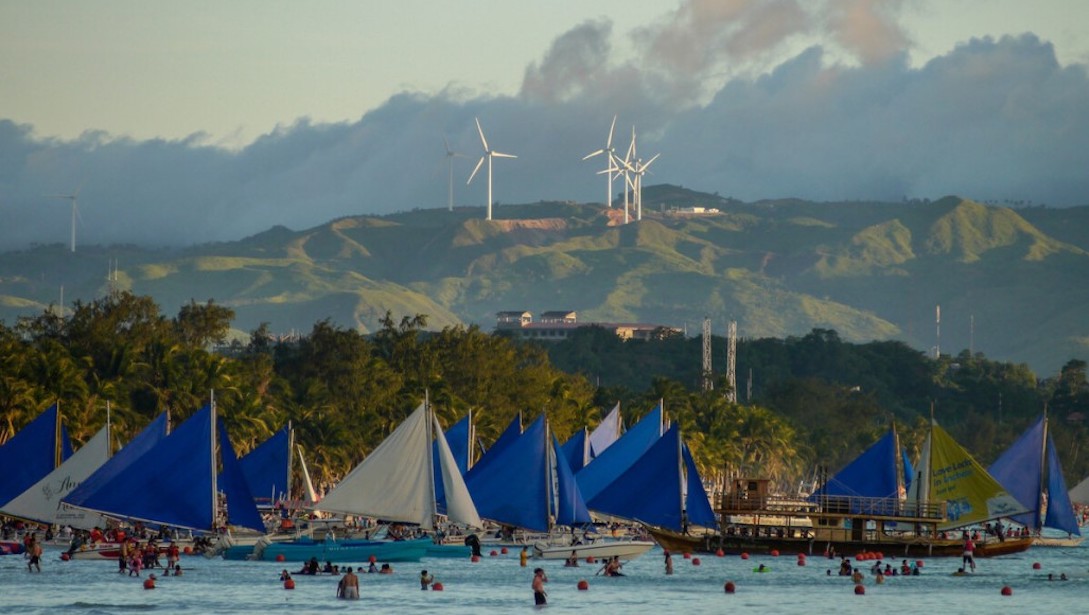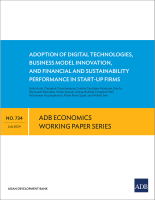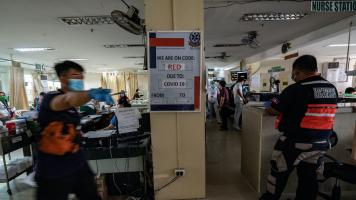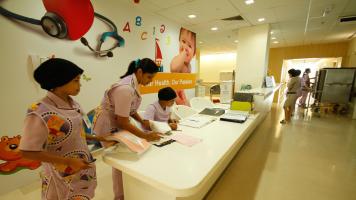
Priority projects include renewable energy and sustainable tourism development. Photo credit: ADB.
Priority projects include renewable energy, green enterprises, sustainable tourism, low-carbon transport, and high-quality agro-fisheries production.
The BIMP-EAGA–Republic of Korea Cooperation Fund (BKCF) is again open for proposals for grant financing. Seoul-based fund manager Global Green Growth Institute (GGGI) has made a third call for project proposals on its website and announced that it is accepting applications from 25 January to 22 March 2023.
Priority will be given to projects in four sectors. GGGI provides the following examples:
- Environment – Projects with high potential for environmental and climate mitigation and for adaptation impacts that promote inclusive green growth in areas such as water management, waste management and sanitation, renewable energy, energy efficiency, green buildings, green finance including green bonds, inclusive green entrepreneurship, nature-based solutions including REDD++, and climate-smart agriculture and bioeconomy.
REDD++ is a climate change mitigation solution that includes reducing emissions not just from deforestation and forest degradation but also from all land uses, including agriculture. Bioeconomy refers to the production, use, and conservation of biological resources, including related knowledge, science, technology, and innovation, to provide information, products, processes and services across all economic sectors with the goal of achieving a sustainable economy (Global Bioeconomy Summit, 2018). - Tourism – Eco-friendly and sustainable tourism development, planning and infrastructure that supports tourist-dependent communities that have suffered from the COVID-19 pandemic.
- Connectivity – Low-carbon transport, information and communications technology and digital transformation, trade and investment facilitation, and enhancement of the region’s climate change knowledge economy.
- Agriculture and Fisheries – Projects relating to long-term food security of the subregion, development of high-quality agro-fisheries products, and sustainable livelihood for farmers and fisherfolk.
GGGI also gives detailed guidelines on how to write effective project proposals and templates for applicants to follow. Proposals must clearly indicate targets and outcomes/outputs for gender and social inclusion.
So far, 10 projects were approved to receive grants since the BKCF was created. GGGI first reviews and screens all proposals, and then submits a short list for review and selection/approval by BIMP-EAGA countries and the Republic of Korea.
The Korean government established the BKCF in 2021 to help promote inclusive and balanced growth in Southeast Asia and contribute to ASEAN Connectivity. The fund supports Vision 2025 of BIMP-EAGA, a cooperation initiative established in 1994 by Brunei Darussalam, Indonesia, Malaysia, and the Philippines.
BKCF provides performance-based funding for 1 or 2 years. Projects with a 1-year term may receive between $50,000 and $300,000, while those lasting 2 years may get between $100,000 and $300,000. For projects with multiple countries, a maximum of $200,000 per country may be approved.
Eligible applicants are government agencies, public sector institutes, academic and research institutes, NGOs, private sector entities, or any other autonomous institutes from member countries of BIMP-EAGA and the Republic of Korea. Individuals and debarred or sanctioned entities are not eligible to apply for the fund.
GGGI said it can participate as a delivery partner to support the implementation of requested components of the approved project with an endorsement of the BIMP-EAGA country or countries where the proposed project will be carried out.
This article was first published by BIMP-EAGA on 27 January 2022.


